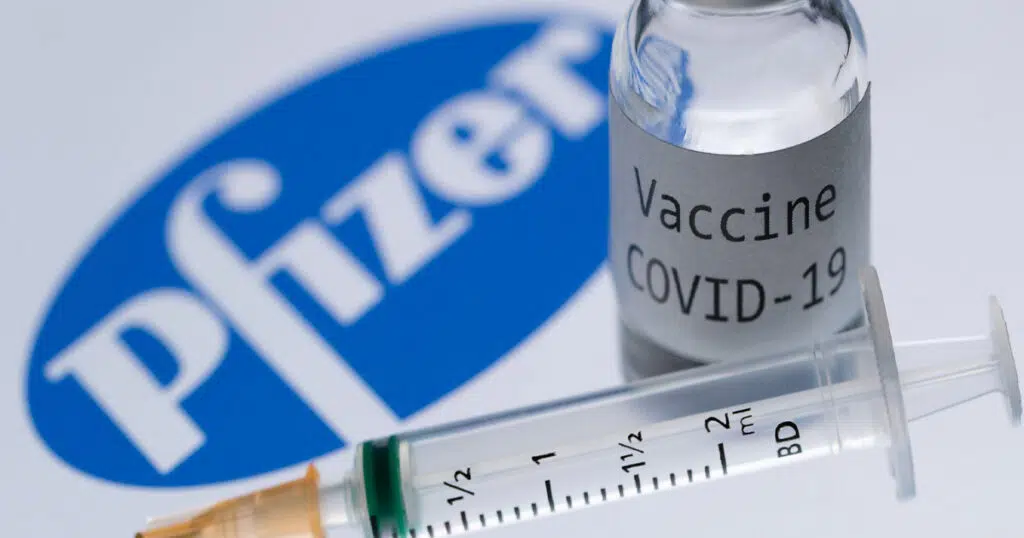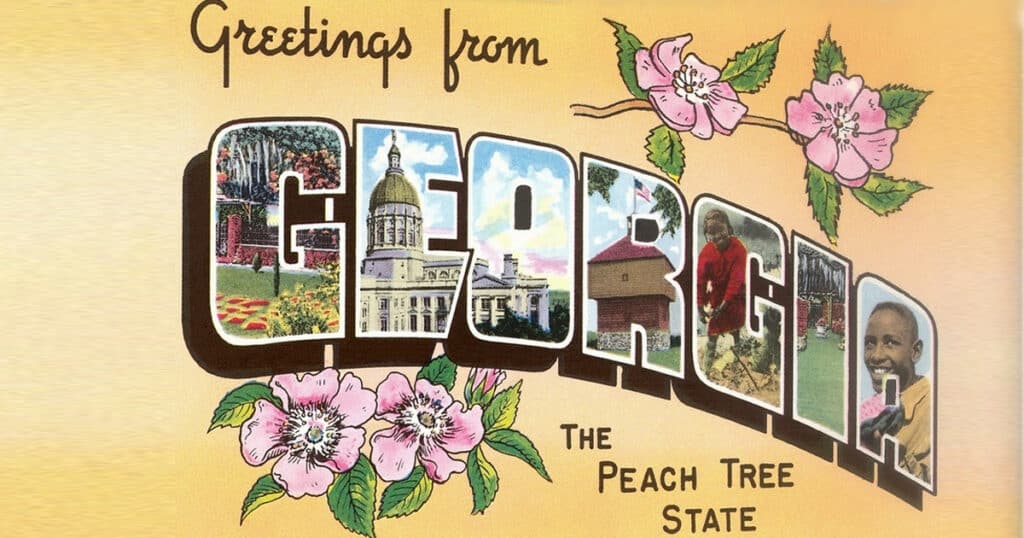
American Pandemic ‘Samizdat’
On May 15, 1970, the New York Times published an article by esteemed Russia scholar Albert Parry detailing how Soviet dissident intellectuals were covertly passing forbidden ideas around to each other on handcrafted, typewritten documents called samizdat. Here is the beginning of that seminal story:
Censorship existed even before literature, say the Russians. And, we may add, censorship being older, literature has to be craftier. Hence, the new and remarkably viable underground press in the Soviet Union called samizdat.
Samizdat – translates as: “We publish ourselves” – that is, not the state, but we, the people.
Unlike the underground of Czarist times, today’s samizdat has no printing presses (with rare exceptions): The K.G.B., the secret police, is too efficient. It is the typewriter, each page produced with four to eight carbon copies, that does the job. By the thousands and tens of thousands of frail, smudged onionskin sheets, samizdat spreads across the land a mass of protests and petitions, secret court minutes, Alexander Solzhenitsyn’s banned novels, George Orwell’s “Animal Farm” and “1984,” Nicholas Berdyayev’s philosophical essays, all sorts of sharp political discourses and angry poetry.
Though it is hard to hear, the sad fact is that we are living in a time and in a society where there is once again a need for scientists to pass around their ideas secretly to one another so as to avoid censorship, smearing, and defamation by government authorities in the name of science.
I say this from first-hand experience. During the pandemic, the U.S. government violated my free speech rights and those of my scientist colleagues for questioning the federal government’s COVID policies.
American government officials, working in concert with big tech companies, defamed and suppressed me and my colleagues for criticizing official pandemic policies – criticism that has been proven prescient. While this may sound like a conspiracy theory, it is a documented fact, and one recently confirmed by a federal circuit court.
In August 2022, the Missouri and Louisiana attorneys general asked me to join as a plaintiff in a lawsuit, represented by the New Civil Liberties Alliance, against the Biden administration. The suit aims to end the government’s role in this censorship and restore the free speech rights of all Americans in the digital town square.
Lawyers in the Missouri v. Biden case took sworn depositions from many federal officials involved in the censorship efforts, including Anthony Fauci. During the hours-long deposition, Fauci showed a striking inability to answer basic questions about his pandemic management, replying “I don’t recall” over 170 times.
Legal discovery unearthed email exchanges between the government and social media companies showing an administration willing to threaten the use of its regulatory power to harm social media companies that did not comply with censorship demands.
The case revealed that a dozen federal agencies pressured social media companies Google, Facebook, and Twitter to censor and suppress speech contradicting federal pandemic priorities. In the name of slowing the spread of harmful misinformation, the administration forced the censorship of scientific facts that didn’t fit its narrative de jour. This included facts relating to the evidence for immunity after COVID recovery, the inefficacy of mask mandates, and the inability of the vaccine to stop disease transmission. True or false, if speech interfered with the government’s priorities, it had to go.
On July 4, U.S. Federal District Court Judge Terry Doughty issued a preliminary injunction in the case, ordering the government to immediately stop coercing social media companies to censor protected free speech. In his decision, Doughty called the administration’s censorship infrastructure an Orwellian “Ministry of Truth.”
In my November 2021 testimony in the House of Representatives, I used this exact phrase to describe the government’s censorship efforts. For this heresy, I faced slanderous accusations by Rep. Jamie Raskin, who accused me of wanting to let the virus “rip.” Raskin was joined by fellow Democrat Rep. Raja Krishnamoorthi, who tried to smear my reputation on the grounds that I spoke with a Chinese journalist in April 2020.
Judge Doughty’s ruling decried the vast federal censorship enterprise dictating to social media companies who and what to censor, and ordered it to end. But the Biden administration immediately appealed the decision, claiming that they needed to be able to censor scientists or else public health would be endangered and people would die. The U.S. 5th Circuit Court of Appeals granted them an administrative stay that lasted until mid-September, permitting the Biden administration to continue violating the First Amendment.
After a long month, the 5th Circuit Court of Appeals ruled that that pandemic policy critics were not imagining these violations. The Biden administration did indeed strong-arm social media companies into doing its bidding. The court found that the Biden White House, the CDC, the U.S. surgeon general’s office, and the FBI have “engaged in a years-long pressure campaign [on social media outlets] designed to ensure that the censorship aligned with the government’s preferred viewpoints.”
The appellate judges described a pattern of government officials making “threats of ‘fundamental reforms’ like regulatory changes and increased enforcement actions that would ensure the platforms were ‘held accountable.’” But, beyond express threats, there was always an “unspoken ‘or else.’” The implication was clear. If social media companies did not comply, the administration would work to harm the economic interests of the companies. Paraphrasing Al Capone, “Well that’s a nice company you have there. Shame if something were to happen to it,” the government insinuated.
“The officials’ campaign succeeded. The platforms, in capitulation to state-sponsored pressure, changed their moderation policies,” the 5th Circuit judges wrote, and they renewed the injunction against the government’s violation of free speech rights. Here is the full order, filled with many glorious adverbs:
Defendants, and their employees and agents, shall take no actions, formal or informal, directly or indirectly, to coerce or significantly encourage social-media companies to remove, delete, suppress, or reduce, including through altering their algorithms, posted social-media content containing protected free speech. That includes, but is not limited to, compelling the platforms to act, such as by intimating that some form of punishment will follow a failure to comply with any request, or supervising, directing, or otherwise meaningfully controlling the social media companies’ decision-making processes.
The federal government can no longer threaten social media companies with destruction if they don’t censor scientists on behalf of the government. The ruling is a victory for every American since it is a victory for free speech rights.
Although I am thrilled by it, the decision isn’t perfect. Some entities at the heart of the government’s censorship enterprise can still organize to suppress speech. For instance, the Cybersecurity and Infrastructure Security Agency (CISA) within the Department of Homeland Security can still work with academics to develop a hit list for government censorship. And the National Institutes of Health, Tony Fauci’s old organization, can still coordinate devastating takedowns of outside scientists critical of government policy.
So, what did the government want censored?
The trouble began on Oct. 4, 2020, when my colleagues and I – Dr. Martin Kulldorff, a professor of medicine at Harvard University, and Dr. Sunetra Gupta, an epidemiologist at the University of Oxford – published the Great Barrington Declaration. It called for an end to economic lockdowns, school shutdowns, and similar restrictive policies because they disproportionately harm the young and economically disadvantaged while conferring limited benefits.
The Declaration endorsed a “focused protection” approach that called for strong measures to protect high-risk populations while allowing lower-risk individuals to return to normal life with reasonable precautions. Tens of thousands of doctors and public health scientists signed on to our statement.
With hindsight, it is clear that this strategy was the right one. Sweden, which in large part eschewed lockdown and, after early problems, embraced focused protection of older populations, had among the lowest age-adjusted all-cause excess deaths of nearly every other country in Europe and suffered none of the learning loss for its elementary school children. Similarly, Florida has lower cumulative age-adjusted all-cause excess deaths than lockdown-crazy California since the start of the pandemic.
In the poorest parts of the world, the lockdowns were an even greater disaster. By spring 2020, the United Nations was already warning that the economic disruptions caused by the lockdowns would lead to 130 million or more people starving. The World Bank warned the lockdowns would throw 100 million people into dire poverty.
Some version of those predictions came true – millions of the world’s poorest suffered from the West’s lockdowns. Over the past 40 years, the world’s economies globalized, becoming more interdependent. At a stroke, the lockdowns broke the promise the world’s rich nations had implicitly made to poor nations. The rich nations had told the poor: Reorganize your economies, connect yourself to the world, and you will become more prosperous. This worked, with 1 billion people lifted out of dire poverty over the last half-century.
But the lockdowns violated that promise. The supply chain disruptions that predictably followed them meant millions of poor people in sub-Saharan Africa, Bangladesh, and elsewhere lost their jobs and could no longer feed their families.
In California, where I live, the government closed public schools and disrupted our children’s education for two straight academic years. The educational disruption was very unevenly distributed, with the poorest students and minority students suffering the greatest educational losses. By contrast, Sweden kept its schools open for students under 16 throughout the pandemic. The Swedes let their children live near-normal lives with no masks, no social distancing, and no forced isolation. As a result, Swedish kids suffered no educational loss.
The lockdowns, then, were a form of trickle-down epidemiology. The idea seemed to be that we should protect the well-to-do from the virus and that protection would somehow trickle down to protect the poor and the vulnerable. The strategy failed, as a large fraction of the deaths attributable to COVID hit the vulnerable elderly.
The government wanted to suppress the fact that there were prominent scientists who opposed the lockdowns and had alternate ideas – like the Great Barrington Declaration – that might have worked better. They wanted to maintain an illusion of total consensus in favor of Tony Fauci’s ideas, as if he were indeed the high pope of science. When he told an interviewer, “Everyone knows I represent science. If you criticize me, you are not simply criticizing a man, you are criticizing science itself,” he meant it unironically.
Federal officials immediately targeted the Great Barrington Declaration for suppression. Four days after the declaration’s publication, National Institutes of Health Director Francis Collins emailed Fauci to organize a “devastating takedown” of the document. Almost immediately, social media companies such as Google/YouTube, Reddit, and Facebook censored mentions of the declaration.
In 2021, Twitter blacklisted me for posting a link to the Great Barrington Declaration. YouTube censored a video of a public policy roundtable of me with Florida Gov. Ron DeSantis for the “crime” of telling him the scientific evidence for masking children is weak.
At the height of the pandemic, I found myself smeared for my supposed political views, and my views about COVID policy and epidemiology were removed from the public square on all manner of social networks.
It is impossible for me not to speculate about what might have happened had our proposal been met with a more typical scientific spirit rather than censorship and vitriol. For anyone with an open mind, the GBD represented a return to the old pandemic management strategy that had served the world well for a century – identify and protect the vulnerable, develop treatments and countermeasures as rapidly as possible, and disrupt the lives of the rest of society as little as possible since such disruption is likely to cause more harm than good.
Without censorship, we might have won that debate, and if so, the world could have moved along a different and better path in the last three and a half years, with less death and less suffering.
Since I started with a story about how dissidents skirted the Soviet censorship regime, I will close with a story about Trofim Lysenko, the famous Russian biologist. Stalin’s favorite scientist was a biologist who did not believe in Mendelian genetics – one of the most important ideas in biology. He thought it was all hokum, inconsistent with communist ideology, which emphasized the importance of nurture over nature. Lysenko developed a theory that if you expose seeds to cold before you plant them, they will be more resistant to cold, and thereby, crop output could be increased dramatically.
I hope it is not a surprise to readers to learn that Lysenko was wrong about the science. Nevertheless, Lysenko convinced Stalin that his ideas were right, and Stalin rewarded him by making him the director of the USSR’s Institute for Genetics for more than 20 years. Stalin gave him the Order of Lenin eight times.
Lysenko used his power to destroy any biologist who disagreed with him. He smeared and demoted the reputations of rival scientists who thought Mendelian genetics was true. Stalin sent some of these disfavored scientists to Siberia, where they died. Lysenko censored the scientific discussion in the Soviet Union so no one dared question his theories.
The result was mass starvation. Soviet agriculture stalled, and millions died in famines caused by Lysenko’s ideas put into practice. Some sources say that Ukraine and China under Mao Tse-tung also followed Lysenko’s ideas, causing millions more to starve there.
Censorship is the death of science and inevitably leads to the death of people. America should be a bulwark against it, but it was not during the pandemic. Though the tide is turning with the Missouri v. Biden case, we must reform our scientific institutions so what happened during the pandemic never happens again.
This article was originally published by RealClearPolitics and made available via RealClearWire.



